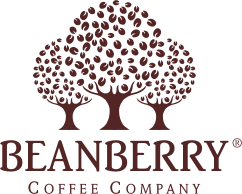- Continue Shopping
- Your Cart is Empty
Basic Principles

To brew great coffee is not difficult, but it does require some basic principles to be observed:
Coffee
Use good fresh coffee. It is best to grind your coffee right before brewing. Burr grinders are the best.
Coffee to Water Ratio
Use 6 g of coffee for every 100 ml of water - this is a good starting point. Using simple kitchen scales for this is the best. You may want to upsize the water quantity slightly, to allow for retention of water in the grinds at the end of the brewing process.
Brewing Water Temperatures
Ideal water temperature for brewing coffee is 92-93 degrees C. In most of hand brewing methods, the water is boiled and then left to cool. Using a kitchen thermometer will help you find the right point to start brewing your coffee. Allow for the fact that as your brew your coffee the temperature of your water will be gradually falling.
Brewing Time
The ideal brewing time is between 3 and 5 minutes. Extending brewing time beyond 5 minutes will make your coffee taste increasingly bitter. Shortening the brewing time will result in under-extraction and coffee tasting thin.
Whole Beans or Ground Coffee?
Whole beans. Ground coffee loses its freshness incredibly fast. However, if you do not have a coffee grinder and would like us to grind your beans, select the relevant grind option at the bottom of the product page.
Water Quality
Considering that the strongest cup of coffee is more than 98% water, the quality of water used for brewing is very important. Use fresh chlorine-free soft to medium-hard water with total dissolved solids value (tds) of one hundred and fifty or less. Ideally, the water used in brewing should be pH neutral (about 7.1 value). Acidic or alkaline water will interfere with the balance and flavour of your coffee. If you have to brew coffee using more alkaline water, it is best to use light roasted coffee, conversely, with more acidic water, darker roasted coffees perform better than the light roasted ones.



